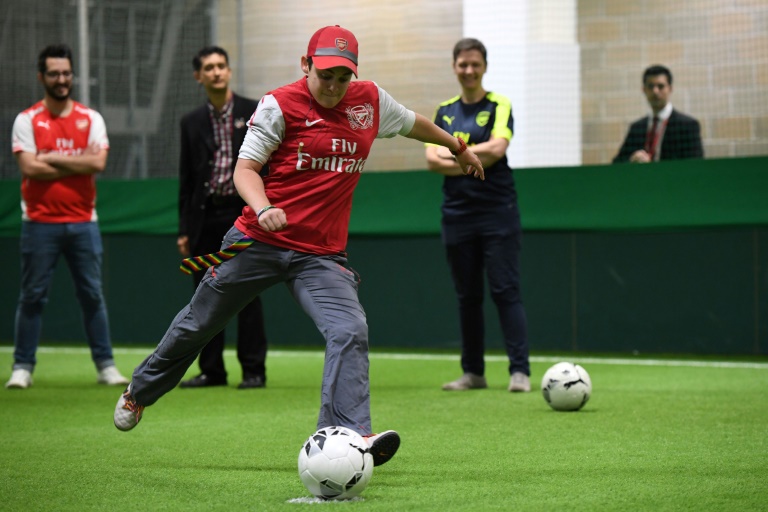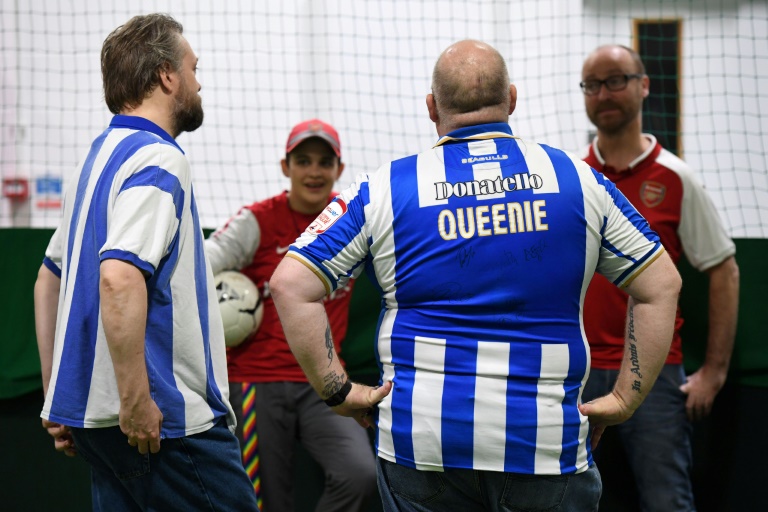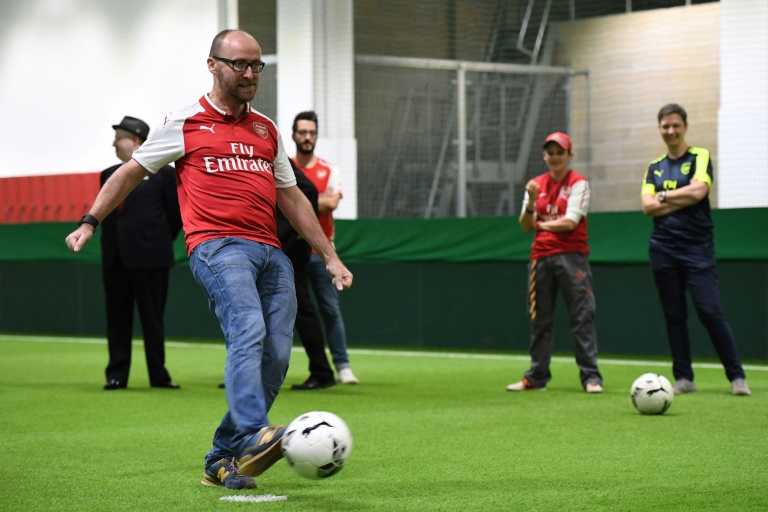Sunrisers end drought with first SA20 win against Super Giants
That’s the view of gay British comedian Matt Lucas — best known for the series “Little Britain” — who spoke to AFP in his role as patron of Arsenal’s Gay Gooners supporters’ group.
“I don’t think we are about to have anyone come out but when he finally does there will be challenges,” said Lucas, who also played Tweedledee/Tweedledum in “Alice in Wonderland” and “Alice Through the Looking Glass”.
“I don’t know 100 percent what they are, but what I will say is the first player who comes out will be a superstar who will speak to people in the game who aren’t spoken to — and speak to those beyond the game.
“They will get every advertising contract out there and be really iconic.”
Lucas, 43, concedes football stadiums are less scary places for gay supporters than they were when he was growing up but says it is not yet an environment in which players can feel confident enough to admit they are homosexual.

Players from the gay supporters’ teams of Arsenal and Brighton take part in a penalty shoot-out competition at the Arsenal Hub in north London on October 1, 2017, ahead of the Premier League game between the two teams
“It is tough,” said Lucas, who took part in a penalty shootout between the Gay Gooners and their Brighton counterparts the Proud Seagulls at Arsenal’s community centre before Sunday’s Premier League clash at the Emirates in north London.
“There are so many things that can go against you in football, so you don’t want to embrace anything that can be seen as a weakness.
“We are not yet at that place inside football where people feel strong enough to come out but I think it will happen in the next five to 10 years.”
– ‘Petrified’ –
Jonathan Green, a member of the Gay Gooners, agrees with Lucas that coming out is not an option for players at the moment, although he believes if the support structure were put in place by employers, the situation would change.
“Football matches are a bit like pantomime — the booing and the hissing and ‘he’s behind you’ sort of remarks,” said Green, who works in IT for an oil company.
“But if you find something out about a player’s private life you will use it to get under their skin.

Players from the gay supporters’ teams of Arsenal and Brighton take part in a penalty shoot-out competition at the Arsenal Hub in north London on October 1, 2017, ahead of the Premier League game between the two teams
“What are they (the Premier League and the Football Association) doing about it? Not a lot until recently.
“Arsenal can’t be more supportive. They come to Pride and are heavily involved in loads of other activities.”
Green, who featured in Sunday’s match programme that was carried the title “Arsenal for Everyone”, says it would be tough for a player who came out.
“There is a groundswell, even a tsunami of homophobia which will wash over clubs if a player comes out,” said Green, who says common remarks he hears aimed at players include “does your boyfriend know you are here” and “why are you holding hands”?
He says football authorities should appoint people to carry out a “gay audit” and ask clubs whether they have a support mechanism in place for players who might want to come out.
“Those playing who are gay are petrified of coming out. There are a lot of players who are gay, some in the Premier League, but they are not supported by the people who employ them, the clubs,” he said.

Players from the gay supporters’ teams of Arsenal and Brighton take part in a penalty shoot-out competition at the Arsenal Hub in north London on October 1, 2017
About a third of England’s 92 football league clubs have LGBT (lesbian, gay, bisexual and transgender) fan groups.
While Arsenal have taken a lead on inclusivity, Brighton have taken a different approach, according to Proud Seagulls founder Stuart Matthews.
“I think at the moment, and I don’t want to disrespect the club as I can understand their hesitancy, they don’t think it’s a club problem, it’s the other clubs’ problem,” the 50-year-old delivery driver told AFP.
“They think that because it is the other clubs’ fans who are the ones making the chants. I look at it both ways and that the club (Brighton) should say ‘we won’t tolerate this’ to their counterparts.”
Arsenal manager Arsene Wenger talked up the importance of an inclusive approach after Sunday’s match.
“It’s vital, one of the responsibilities of sport,” he said. “Personally, I preach sometimes in the desert.
“It’s not only about winning — a football club is first about values. If I am here for 21 years, it’s because we have those values.”
The highest-profile European player to come out is former German international Thomas Hitzlsperger, who played mainly for Aston Villa in England and VfB Stuttgart in Germany, but he only made his announcement in 2014 once he had ended his career.
Download our app and read this and other great stories on the move. Available for Android and iOS.